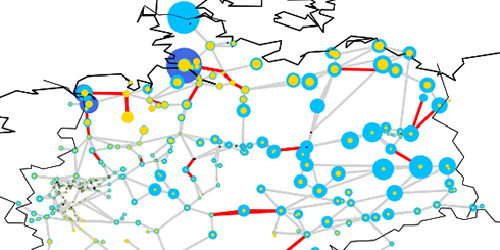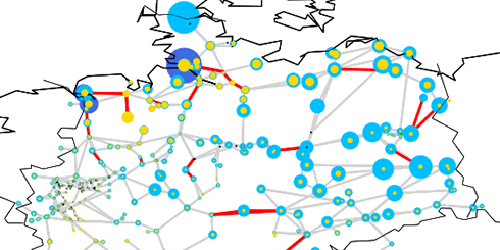How Correlated Weather Fluctuations Take Down Power Grids
Intermittent power generation from renewable sources such as wind and solar may test the reliability of a power grid in ways that aren’t fully understood. Now, Tommaso Nesti of the National Research Institute for Mathematics and Computer Science, Netherlands, and colleagues have drawn on concepts from statistical physics to predict how such power grids might respond to randomly fluctuating power injections.
The researchers’ model of power grids includes information about power line capacity, network topology, and historical data on power loads and generation. They predicted potential failures in the network using large deviations theory, a mathematical framework for analyzing rare events and the way they occur. This analysis created a ranking of which lines are most likely to fail for a given set of grid operating parameters and weather conditions.
To validate their theoretical findings, the team used real data from a power transmission network in Germany. The researchers first estimated the correlations of power injections resulting from weather fluctuations. They then used these correlations to identify the power production pattern that most likely leads to the failure of any given line. One key finding is that failures don’t necessarily result from large fluctuations in nearby power injections but rather from “summing up” many smaller unusual fluctuations spread across the network. They also found that failures can propagate in nonobvious ways. An initial line failure can cause stress and possibly the failure of other lines, even those far from the original point of failure, depending on the layout of the network and weather-induced correlations.
This research is published in Physical Review Letters.
–Christopher Crockett
Christopher Crockett is a freelance writer based in Montgomery, Alabama.





